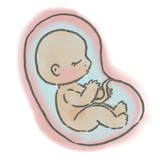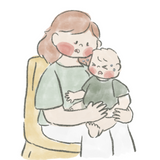How To Manage Your Baby's Sleep Regression
Sleep regressions are temporary periods when a baby or toddler who was previously sleeping well experiences a sudden disruption in their sleep patterns.
What causes Sleep Regressions?
Sleep regressions are often linked to developmental leaps. As babies acquire new skills or experience cognitive growth, their sleep may temporarily take a backseat. Some common causes include:
- Physical development: Learning new skills like rolling over, crawling, or walking.
- Cognitive growth: Increased awareness of surroundings and separation anxiety.
- Changes in sleep needs: As babies grow, their sleep patterns and requirements evolve.
- Teething: Discomfort from emerging teeth can disrupt sleep.
- Environmental changes: Moving, travelling, or even minor changes in bedtime routines can impact sleep.
What are the Signs and Symptoms of a Sleep Regression?
Parents may notice the following signs during a sleep regression:
- Increased night waking and difficulty returning to sleep
- Resistance to bedtime or naps
- Shorter naps or skipping naps altogether
- Increased fussiness or irritability upon waking
- Changes in appetite or feeding
Remember, each baby is unique, so the timing and severity of sleep regressions can vary. Additionally, many babies may not experience sleep regressions during their developmental leaps, or move quickly through them.
When Do Sleep Regressions Happen?
Generally, sleep regressions occur at certain ages:
- 4 months: As your baby’s sleep cycle matures, they begin to experience lighter sleep stages similar to adults.
- 6 months: May coincide with increased physical activity and hunger.
- 8-10 months: Often related to new mobility skills and separation anxiety.
- 12 months: Can be triggered by developmental leaps and changes in nap schedules.
- 18 months: May be influenced by language development and increased independence.
Managing Sleep Regressions
While sleep regressions can be challenging, there are strategies to help navigate them:
- Maintain consistent bedtime routines: Consistency helps signal to your child that sleep time is approaching. Create a predictable sequence of activities like bath, story time, and gentle lullabies that help your child wind down and feel secure.
- Ensure a conducive sleep environment: Create a calm, safe, and comfortable sleep space to help your baby relax and feel secure.
- Encourage self-soothing skills early on: Helping your baby learn to settle themselves can foster independence and make it easier for them to fall back asleep during night wakings. To support your newborn's self-soothing behaviours early on, allow your baby to get their hands to face and mouth as much as possible while swaddling.
- Adjust sleep schedules as needed: As babies grow, their sleep needs evolve. Tweaking nap times or bedtimes can help accommodate these changes and reduce overtiredness.
- Provide extra comfort and support during developmental leaps: During periods of significant cognitive or physical development, children may feel more anxious or unsettled. Offer additional cuddles, patience, and reassurance to help them feel safe and supported through these transitions.


 New Zealand Dollar (NZD)
New Zealand Dollar (NZD)
 Hong Kong Dollar (HKD)
Hong Kong Dollar (HKD)
 Japanese Yen (JPY)
Japanese Yen (JPY)
 Singapore Dollar (SGD)
Singapore Dollar (SGD)
 South Korean Won (KRW)
South Korean Won (KRW)
 United Arab Emirates Dirham (AED)
United Arab Emirates Dirham (AED)
 Canadian Dollar (CAD)
Canadian Dollar (CAD)
 British Pound (GBP)
British Pound (GBP)
 Euro (EUR)
Euro (EUR)
 Swiss Franc (CHF)
Swiss Franc (CHF)
 Swedish krona (SEK)
Swedish krona (SEK)







